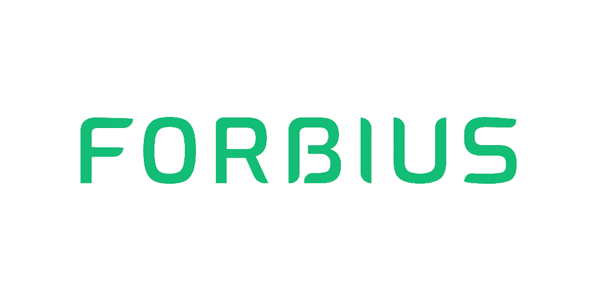- AVID100 is the only clinical-stage anti-EGFR ADC that targets both wild-type and mutant forms of EGFR with limited off-tumor toxicity due to novel mechanism of action
- Phase 1 confirmed that AVID100 was well-tolerated and established a recommended phase 2 dose (RP2D) of 220 mg/m2 (~6 mg/kg) q3w, one of the highest amongst ADCs in development and predicted to be in therapeutic range
- Phase 2 trials ongoing in EGFR-overexpressing (IHC 3+) squamous cell carcinoma of the head and neck (SCCHN) and squamous non-small cell lung cancer (sqNSCLC)
Austin, TX, and Montreal, QC (Mar. 29, 2019) – Forbius, a clinical-stage company that develops novel biologics for the treatment of fibrosis and cancer, announces today that it will report the results from its Phase 1 dose-finding trial with novel, tumor selective, anti-epidermal growth factor receptor (EGFR) antibody-drug conjugate (ADC) AVID100 at the AACR Annual Meeting 2019. An additional AACR poster presentation will feature preclinical data confirming AVID100’s novel mechanism of action, which potently targets tumor cells while sparing EGFR-expressing non-tumor cells.
Presentation Details:
CT056 / 13 – A Phase Ia/IIa trial of AVID100, an anti-EGFR antibody-drug conjugate
Poster presentation: April 1, 8:00 AM – 12:00 PM EST, Section 17
Author: N. Lakhani
(Abstract available here)
- AVID100 was well-tolerated in a Phase 1 dose-escalation study in patients with advanced solid tumors of epithelial origin (any EGFR status)
- Most common treatment-related adverse events (TRAEs, in > 25% patients) were rash (66.7%; grade 1 or 2), nausea (41.7%; grade 1 or 2), and fatigue (29.2%; grade 1 or 2)
- Recommended Phase 2 dose (RP2D) of 220 mg/m2 (~6 mg/kg) confirmed, one of the highest RP2Ds reported for maytansinoid payload ADCs (Deslandes, 2014)
- Phase 2 (AVID100-01; NCT03094169) enrollment ongoing to evaluate AVID100 efficacy, safety, and tolerability in patients with EGFR-overexpressing (IHC 3+) SCCHN and sqNSCLC
218 / 9 – AVID100 is an anti-EGFR ADC that promotes DM1-meditated cytotoxicity on cancer cells but not on normal cells
Poster presentation: March 31, 1:00 PM – 5:00 PM EST, Section 9
Author: M. Thwaites
(Abstract available here)
- AVID100 is highly potent and selectively cytotoxic against EGFR-expressing cancer cells, while sparing normal EGFR-positive keratinocytes
- Protection of EGFR-expressing normal cells is shown to be a function of AVID100’s antibody moiety, which inhibits EGFR signaling and proliferation in normal cells
About AVID100 and the AVID100-01 Trial
AVID100 is a highly potent EGFR-targeting antibody-drug conjugate (ADC) that was engineered to achieve enhanced anti-tumor efficacy without a corresponding increase in toxicity against skin and other EGFR-expressing normal tissues. In preclinical studies, AVID100 demonstrated significant anti-cancer activity, including in EGFR-overexpressing tumor models that are resistant to marketed EGFR inhibitors. AVID100 is the only anti-EGFR ADC in clinical development that targets both wild-type and mutant forms of EGFR.
In a successfully completed Phase 1 study, AVID100 reported a recommended Phase 2 dose (RP2D) of 220 mg/m2 (~6mg/kg), which is expected to be in the therapeutically active range based on preclinical efficacy studies. Treatment was generally well-tolerated, with the majority of treatment-related adverse events in the Phase 1 trial at RP2D being grade 1 or 2 in severity.
AVID100-01 (NCT03094169) is an open label, multi-center, dose-escalation study to evaluate the safety and efficacy of AVID100 in patients with confirmed EGFR-overexpressing tumors.
About Forbius
Forbius is a clinical-stage protein engineering company that designs and develops novel biologics for the treatment of fibrosis and cancer. Our current focus is the development of agents that target the transforming growth factor-beta (TGF-beta) and epidermal growth factor receptor (EGFR) pathways.
Media Relations
Claudia Resch, info@forbius.com
